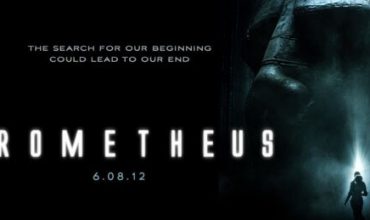Zu is a woman in her late thirties who has had a hard time fighting her drug addiction and alcoholism. Her mother died which left her grandmother Millie to raise her and her half-sister Music. She and her grandmother did not get on and eventually Zu took off leaving her grandmother and sister on their own.
Now years have passed and Millie is gone. Zu is recovering from drug and alcohol abuse and she is the only person left in the family who can be Music’s guardian. The girl is fourteen and on the autism spectrum. She is mostly non-verbal and requires a certain level of daily care. Zu does not feel qualified to do this, but she is low on money and has nowhere else to go, so she moves in to Millie’s apartment where Music lives. The neighbours had a great regard for Millie and Music, and Zu finds help in the form of Ebo, a boxing coach with a positive view on life and its struggles. His positive attitude is more or less the opposite of Zu’s; they are attracted to each other, but neither thinks a relationship is a good idea.
Music seems to be doing OK considering that her sister has moved in and taken over from their grandmother, but outwardly what she is thinking and feeling in hard to read. Her inner world is presented to us via musical numbers that take over the narrative and are illustrated with multiple characters singing and dancing. Zu, Music and Ebo have many challenges to overcome and this drama is punctuated by, and illustrated with, the brightly-lit, colourful imagination of Music.
MUSIC is an interesting film and pop cultural artefact. What the heck am I on about? It’s the directorial debut of Sia Furler, the Australian singer-songwriter who is known for her powerful voice, distinctive music videos and massive face-obscuring wig. That Sia wanted to make a film was known by certain film-savvy types, but this project was not aimed at a wide release. It was going to be a relatively low-budget indie film and it would have had a relatively low-key launch. This changed somewhat after the first trailer dropped in November 2020. Sia was accused of ableism over the casting of Maddie Ziegler in the role of Music. Ziegler is well-known as a frequent collaborator of Sia’s. It was her appearance in the 2011 music video for Chandelier that broke Ziegler to an international audience. Critics on the autism spectrum condemned Ziegler’s casting because she doesn’t have autism. This may have been a side-issue to the film’s release, however Sia responded to her critics with both barrels via social media. She dismissed the criticism and the critics with little diplomacy. When one commenter pointed out that there was a number of actors on the autism spectrum who could have played the role, including herself, Sia replied “Maybe you’re just a bad actor.”
This public stoush has foregrounded the growing issue of neurotypical actors playing neuroatypical roles. Maddie Ziegler’s performance is not unlike that of Leonardo DiCaprio’s in WHAT’S EATING GILBERT GRAPE (1993). Thirty years ago, this sort of presentation was considered ground-breaking, now it’s the trigger for a cultural battle.
For those filmgoers uninterested in such matters, the story of MUSIC (co-written by children’s author Dallas Clayton) is a fable that deals with some real-life problems and mostly turns them into movie fantasy. The dark and the tragic is glimpsed, but then quickly turned away from to submerge us into the fantastic world of Music’s mind. If you like musicals generally, and I do, the time spent in Music’s world is fun. It isn’t a pale attempt to imitate classic movie musicals like LA-LA LAND, rather it is an extension of the work we saw in the Sia music videos directed by Daniel Askill and choreographed by Ryan Heffington (Elastic Heart, Big Girls Cry, and Rainbow to name three).
The imagery is often composed of everyday objects dominating small sets which represent the physically small world that Music inhabits, but these spaces are then filled with the movement and energy of cartoon-like dancers, some of whom are the actual people that Music encounters. The domestically-themed, arts and crafty sets are reminiscent of director Michel Gondry and the music-video feel of the sequences seems to hark back to the work of choreographer and director Philippe Decouflé who was responsible for music videos like New Order’s True Faith (1987).
The filmmaking in general, is solid, particularly for Sia’s debut effort. The performances are good. Zu is played by Kate Hudson and it is a relief to see her stepping away from the middle-class, well-balanced, rom-com gals she has mostly played for twenty-years. Zu is a hot mess and Hudson gives it her all. Leslie Odom Jr has a solid following for his work in the musical Hamilton and for his jazz recordings. He brings some gravitas to what could have been a light–weight character. When he, Hudson and Ziegler are going for it in the musical scenes, the film has great energy, drive and joy.
Ultimately, for a story with a main character who has autism, this movie doesn’t actually deal with autism and what that means in Music’s life. And that will be a deal-breaker for some potential viewers. If you don’t believe Sia and her movie are required to take on the issues of living on the autism spectrum, then this film will present you with a number of elements; great musical sequences, some moving scenes, some overly-sentimental scenes and a talented cast of actors, dancers and singers doing their thing to an excellent soundtrack. The preview crowd applauded at the end, which is rare for an Australian audience.
Running Time: 1 hour 47 minutes. Rating: 7/10


